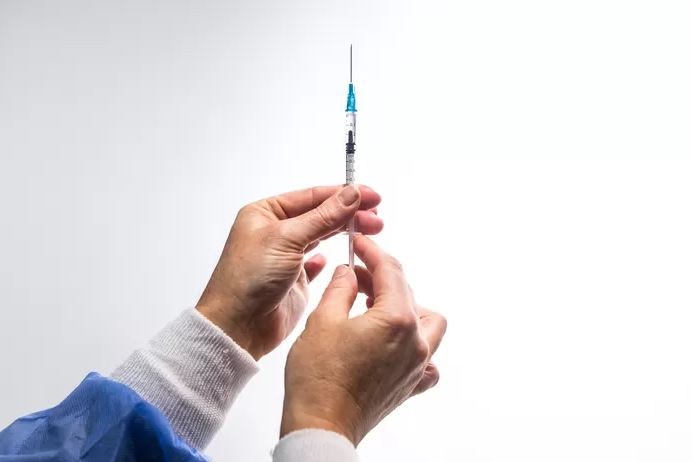As Belgium's vaccination campaign is in full swing, experts are warning people to remain cautious and avoid getting infected in the first few weeks after receiving their first shot.
During a press conference on Tuesday, virologist and interfederal Covid-19 spokesperson Steven Van Gucht stated that while the campaign for adults is progressing well, it will not be completed until August at the earliest.
Doctors and GPs, however, are regularly reporting that people get infected with the coronavirus shortly after their vaccination, according to Van Gucht.
"This is because the first dose of the vaccine only provides protection at the earliest two to three weeks after the injection," he said. "This means that if you are infected during the first two weeks after the first vaccination, you cannot yet count on being protected by the vaccine."
"It is as if you have not yet been vaccinated. Your immune system still has to develop and needs at least two weeks to be ready," Van Gucht clarified. "So, be careful in those first weeks after your first vaccination."
Related News
- Over 100,000 people on Qvax reserve list have received vaccine appointment
- One in four Brussels vaccines went to non-residents
- Next Consultative Committee postponed to Friday 4 June
Additionally, most vaccines only provide optimal protection after the second dose. "This is particularly important for protection against variants, such as the South African, but also the Indian variant," he added.
This was recently confirmed by a study carried out by the English public health institute Public Health England, which showed "excellent protection against both the British and Indian variants after two doses of either the Pfizer/BioNTech or the AstraZeneca vaccine," Van Gucht said.
"After one dose, they already saw a partial protection, but it was clearly less strong than after two doses," he said, adding that especially against the Indian variant, there was less protection after one dose.
One dose of Pfizer/BioNTech or one dose of AstraZeneca's vaccine reduced the risk of developing Covid symptoms by about 51% in the case of the British variant. Against the Indian variant, the protection was lower, with 34% after one dose, according to Van Gucht.
"When we looked at two doses, we saw that the protection was a lot better, ranging from 60% for AstraZeneca to 93% for Pfizer," he added.
Important to note, however, is that the study concerned all forms of the disease, including mild symptoms. "We know that if we look at the most severe form of this disease, which involves hospitalisation and unfortunately sometimes death, the protection is much higher anyway, even after one dose."
"Against severe forms of the disease, including hospitalisation, both vaccines already offer 80-90%," Van Gucht said.
For the Indian variant, there is not yet sufficient data to be able to calculate this. "But we assume that there, too, the protection against the severe form of the disease will probably be good."
"In summary, all vaccines work well, even against the variants, including the Indian one," he said. "But it is important to remember that you have to give the vaccine time."
"So, avoid infection in those first two to three weeks after vaccination, and give the vaccine a chance to train your defences," Van Gucht said.
"Limit your close contacts, meet outside and keep your distance," he added. "That way, you can avoid infection, even in those first crucial weeks after vaccination."

